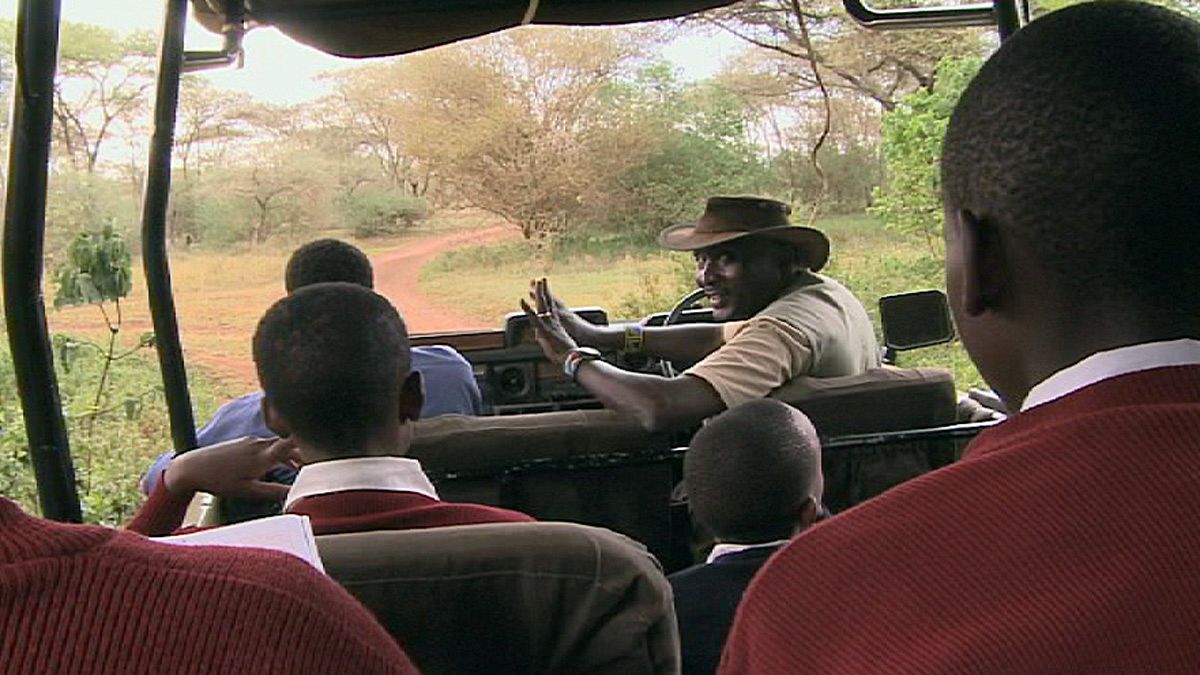With climate change, deforestation and ever increasing threats to wildlife, environmental activists believe much more still needs to be done to protect our planet.
Around the world, efforts are being made to boost awareness amongst young people about environmental issues. The hope is that today’s classroom pupils will be the green guardians of tomorrow.
Vietnam: Small steps, big changes
Some of Vietnam’s floating villages are UNESCO World Heritage Sites and attract visitors from all over the world.
While it is good news for the local economy, it can be bad news for eco-systems.
Five million people flock to Halong Bay, northern Vietnam, every year – drawn by its natural beauty.
Cua Van is a 100-year-old floating village, the largest in the area.
Under a scheme led by various agencies, children have been learning about the importance of their environment and how to protect it – with dedicated lessons held during and after school time.
Tanzania: Hands off our wildlife
In some parts of Tanzania, wildlife has suffered from over-grazing, poaching and deforestation – turning rich, natural areas into wastelands.
The Ndarakwai Camp organises wildlife safaris for groups of students from the West Kilimanjaro area – to teach them about conservation work at the 11,000 acre site.
The area was damaged by years of overgrazing – and took almost a decade to recover.
Italy: Earth education
Steve Van Matre, an American environmental activist, author and educator, founded the Institute for Earth Education.
The organisation runs a programme which is billed as a revolutionary approach to green education.
Speaking on the island of Sardinia, Van Matre told euronews that there should always be a focus on people getting to grips with the environment first hand.
He believes that conventional forms of education have failed to give a comprehensive insight into conservation issues.
“All our programmes are designed around three basic points,” explained Van Matre.
“One is how does it (the environment) function ecologically. Two, how can we feel this ourselves, not just to talk about it in a science class at school, but to get out here in the middle of it and feel it.
“And three, how can we personally make some changes so we can have less impact on the systems of life.”
